
cookiemonster3375
Just me
18 posts
Latest Posts by cookiemonster3375
Hell yeah

Damn straight



So true


Riley Reid



This video needs to be blasted all over ever social media platform by everyone.
🙏
Recognizing Complex PTSD (C-PTSD)
Recognizing Complex PTSD can be really tough.
People tend to think of PTSD as a thing that only happens to former soldiers, or maybe somebody who was in a life-threatening accident or the victim of sexual assault. But actually, little everyday traumas can cause PTSD too: things like experiencing everyday racism or other prejudice, being rejected repeatedly by peers, or not having your parents acknowledge your feelings or opinions. Lots of people struggle with anxiety, depression, low self-esteem, eating disorders, or even symptoms of ADHD, and never realize that they could be caused by a childhood or lifetime full of these “minor” traumas. Just growing up with emotional neglect–having parents who didn’t listen to you or express much affection for you–can be enough to cause C-PTSD. The good news is that addressing your trauma history can lead to recovery! So how can you tell if you have Complex PTSD?
Symptoms of PTSD:
Intrusion: The traumatic event is persistently re-experienced in one or more of the following ways:
Recurrent, involuntary, and intrusive memories.
Children older than six may express this symptom through repetitive play in which aspects of the trauma are expressed.
Traumatic nightmares or upsetting dreams with content related to the event. Children may have frightening dreams without content related to the trauma. [I have a lot of nightmares unrelated to the event, which may be because the trauma started when I was a child.]
Dissociative reactions, such as flashbacks, in which it feels like the experience is happening again. These may occur on a continuum ranging from brief episodes to complete loss of consciousness. [Emotional flashbacks can feel like a sudden mood swing. Look for incidents where you had an emotional reaction that was inappropriate for or way out of proportion to the circumstances that triggered it. Dissociation can also take the form of derealization or depersonalization.]
Intense or prolonged distress after exposure to traumatic reminders. [”Being triggered”: see above]
Marked physiological reactivity, such as increased heart rate, after exposure to traumatic reminders.
Avoidance: Persistent effortful avoidance of distressing trauma-related reminders after the event
Avoidance of trauma-related thoughts or feelings.
Avoidance of trauma-related external reminders, such as people, places, conversations, activities, objects, or situations.
Negative Alterations in Mood: Negative alterations in cognition and mood that began or worsened after the traumatic event
Inability to recall key features of the traumatic event. This is usually dissociative amnesia, not due to head injury, alcohol, or drugs. [It’s not unusual for people who were traumatized in childhood to feel like they don’t remember much of their childhood, or that it’s “all a blur”.]
Persistent, and often distorted negative beliefs and expectations about oneself or the world, such as “I am bad,” or “The world is completely dangerous.” [”This is never going to get better.” “I’m so annoying to people. I should never talk again.” “I just suck at everything I do.” “I just don’t fit in this world.” This includes catastrophizing: “If I eat more candy I’m going to have more cavities and I’m going to LOSE ALL MY TEETH OMG” etc]
Persistent distorted blame of self or others for causing the traumatic event or for the resulting consequences.
Persistent negative emotions, including fear, horror, anger, guilt, or shame. [And, obviously, depression!]
Markedly diminished interest in activities that used to be enjoyable. [”Anhedonia”]
Feeling alienated, detached or estranged from others. [Feeling like you’re really special. Feeling like you’re completely alone in the world. Feeling like there’s nobody else like you anywhere. Feeling like you have absolutely nobody who loves you–even if you actually do.]
Persistent inability to experience positive emotions, such as happiness, love, and joy.
Alterations in Reactivity:
Irritable or aggressive behavior
Self-destructive or reckless behavior [Includes self-harm and suicide attempts]
Feeling constantly “on guard” or like danger is lurking around every corner (hypervigilance) [In people with interpersonal trauma, this can mean watching people’s emotional reactions to you constantly for signs that they dislike you, are angry with you, are upset, etc.]
Exaggerated startle response
Problems in concentration
Sleep disturbance
Symptoms of Complex PTSD
In addition to the core symptoms of single-event PTSD, people with C-PTSD [the result of prolonged or repetitive trauma] may also experience:
Difficulty Controlling Emotions: You may experience an emotional flashback. This is when you have intense feelings that you originally felt during the trauma, such as fear, shame, or sadness. You may also experience severe depression, thoughts of suicide, or have difficulty controlling your anger.
Detachment from Trauma (Dissociation): Dissociation is the mind’s way of coping with an intensely traumatic experience. Those who experience dissociation may feel detached from their surroundings, their actions, and their body. They may experience gaps in their memory surrounding the original trauma or an everyday task that reminds them of the trauma they experienced. [People with C-PTSD also often have trouble feeling their emotions, or identifying how they’re feeling: they subconsciously try to separate themselves from their feelings, because they’re afraid they will be overwhelmed by them. Dissociation can also take the form of distracting oneself from one’s feelings or circumstances–being a “busyholic”, sleeping way more than necessary, constantly looking for distractions, excessive daydreaming, etc.]
Changes in Self-Perception: Complex PTSD can cause a person to view themselves in a negative light. This negative self-image can include feeling as if they are different from other people and feelings of helplessness, guilt, or shame.
Preoccupation With Perpetrator: It is not uncommon for people with C-PTSD to become fixated on their abuser. This can include becoming obsessed with the abuser, dissecting their relationship with the abuser, and becoming preoccupied with revenge. [People with C-PTSD may also feel that their abuser is somehow all-powerful or that they will somehow manage to ruin the survivor’s life, even if the survivor is no longer in contact with them. Personally, I get into obsessive, ranting arguments in my head with my abusers, which I find very upsetting.]
Difficulty with Personal Relationships: Someone with C-PTSD may develop unhealthy relationships because they find it difficult to interact with and trust others. [People with C-PTSD may find themselves withdrawing from others and having trouble maintaining relationships or trusting other people. They may isolate themselves because it feels a lot easier just to stay in bed than to face the world. They may also persistently end up in relationships with abusive partners or friends.]
Changes in Beliefs: People exposed to chronic or repeated traumatic events may lose faith in humanity and previously held beliefs.
If these sound like you…
…I strongly recommend that you talk to a mental health professional about Complex PTSD and look intro treatment options! People DO recovery from C-PTSD. It’s not a life sentence. There ARE effective treatments!


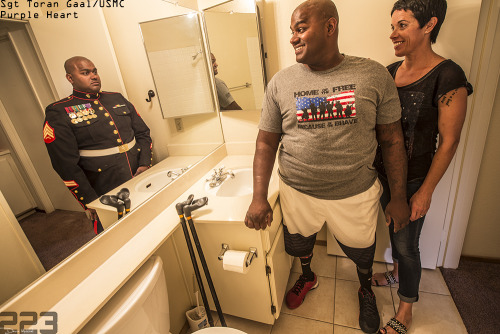
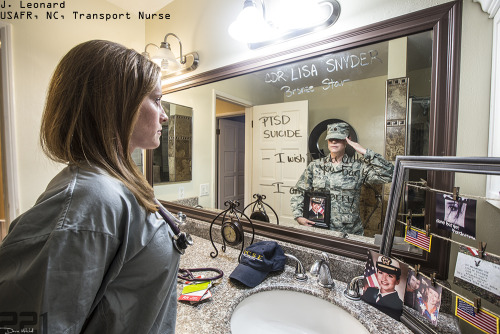

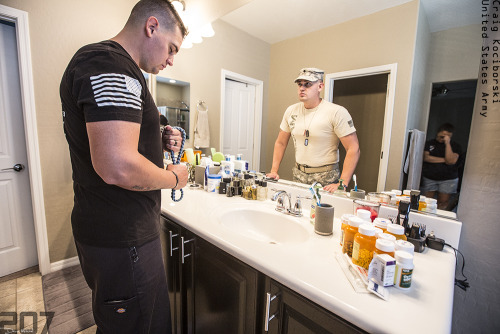
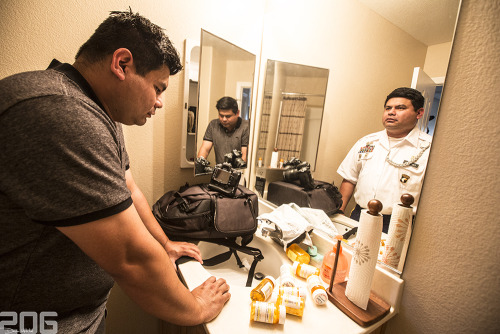
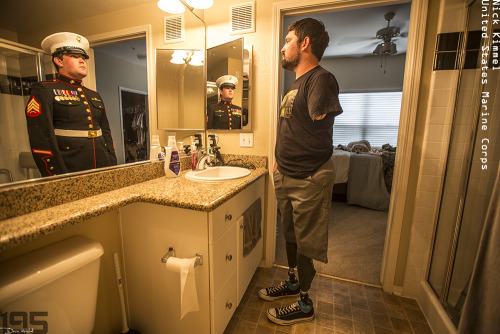

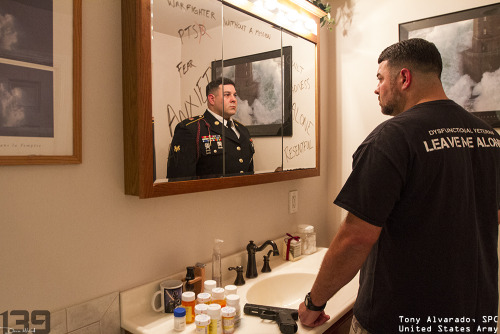






The fighting doesn’t just end after they come home.
Veteran Vision Project
I thought this was cool
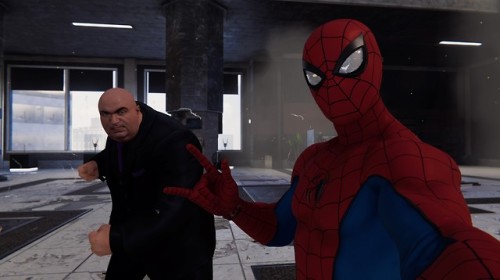





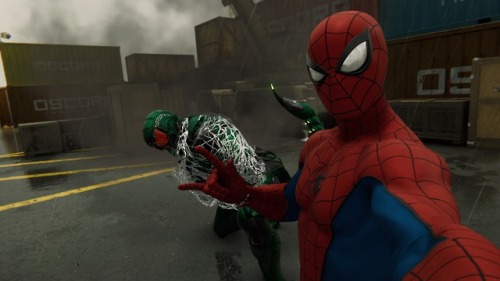

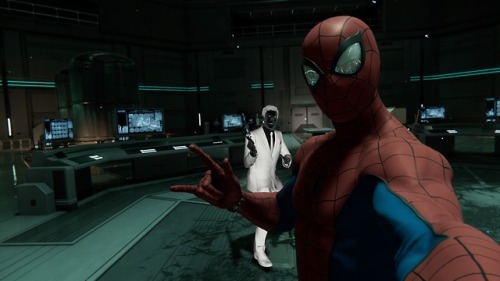

I TOOK A SELFIE WITH EVERY BOSS IN SPIDER-MAN







“There will always be a Joker. Because there is no cure for him. No cure at all… just a Batman.”
Cosplayer and a baseball fan! Felicity Davis may be the world’s most perfect woman


